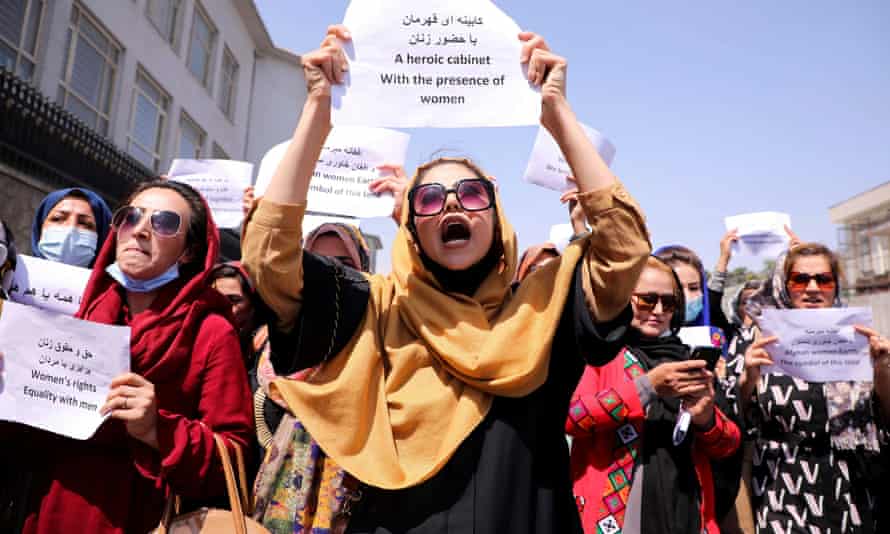The conduct of the Taliban with Afghan women has been highly controversial and rightfully debated globally. Taliban rule until 2001 was considered shocking and barbaric for its misogyny and ferocity against women.
Women in Afghanistan were forced to wear the burqa at all times in public, because, according to one Taliban spokesman, “the face of a woman is a source of corruption,” for men not related to them. In systematic segregation, sometimes referred to as gender apartheid, women were not allowed to work, they were not allowed to be educated after the age of eight, and until then were permitted only to study the Qur’an.
Women seeking an education were forced to attend underground schools, where they and their teachers risked execution if caught. Women were not allowed to be treated by male doctors unless accompanied by a male relative, which even led to illnesses remain untreated.
They faced public flogging, even execution, for violations of Taliban’s Islamic laws called Sharia.The Taliban allowed and in some cases encouraged marriage for girls under the age of 16. According to Amnesty International, 80% of Afghan marriages were forced.
The Taliban perpetrated shocking acts of violence against women, including rape, abduction, and forced marriage. Some families sent their daughters away to Pakistan or Iran to protect them.
Afghan women were virtually forced to quit their jobs as teachers, doctors, nurses, and clerical workers. As many as 50,000 women who had lost husbands and other male relatives during Afghanistan’s long civil war, had no source of income. Many were reduced to selling all of their possessions and begging in the streets, or worse, to feed their families.
Nor are Taliban’s restrictions on women in line with the reality in other Islamic countries. Muslim women are serving as President of Indonesia and Prime Minister of Bangladesh. There are women government ministers in Arab and other Muslim countries. Women even have the right to vote in countries such as Qatar, Iran, and Bahrain. Throughout the Islamic world, women fill countless positions as doctors, teachers, journalists, judges, businesspersons, diplomats, and as other professionals. In Saudi Arabia, for example, more than half the university student body is female. Although Muslim societies differ among themselves on the status of women and the roles they should play, Islam is a religion that respects women as well as humanity. The Taliban respects neither.
Public concern for Afghan women and girls is growing in the United States. Several non-government organizations have studied the detrimental effects of Taliban policy on women and have worked hard to raise public awareness. Writer Mavis Leno, a leading activist on behalf of Afghan women, recently said, “Everything that constitutes human rights, but life itself, has been swept away from Afghan women by the Taliban.”
Members of the U.S. House of Representatives have spoken out as well against Taliban mistreatment of women including Representative Sheila Jackson-Lee and Ed Royce. The rebranding of new Taliban administration is being treated with skepticism, with many women doubting whether they will find a place in Afghanistan’s new administration.
While women around the world have been progressive and claim their rightful place as equals at power with men, in this 21st Century it will be sad to see Afghanistan women left behind.







